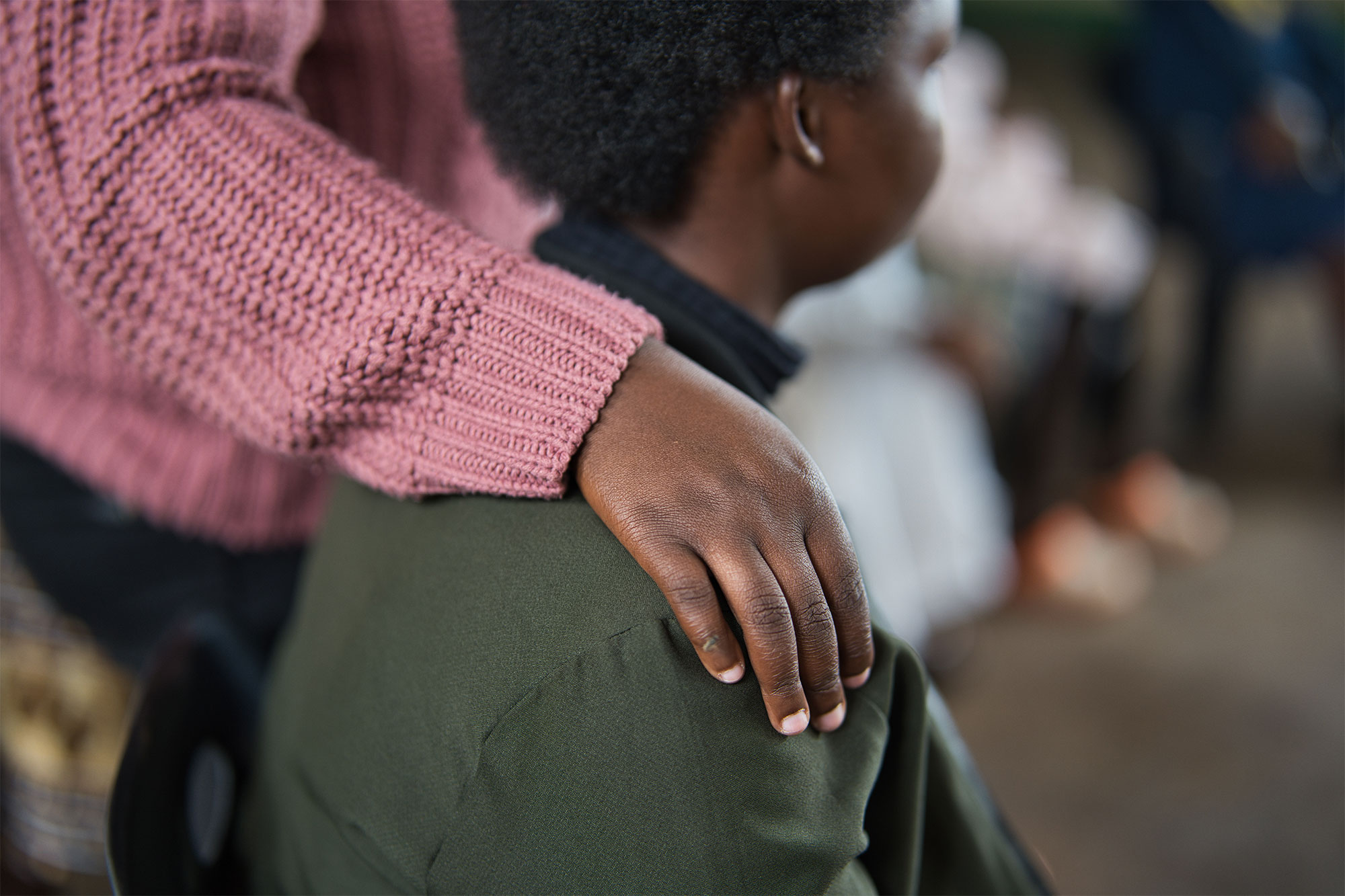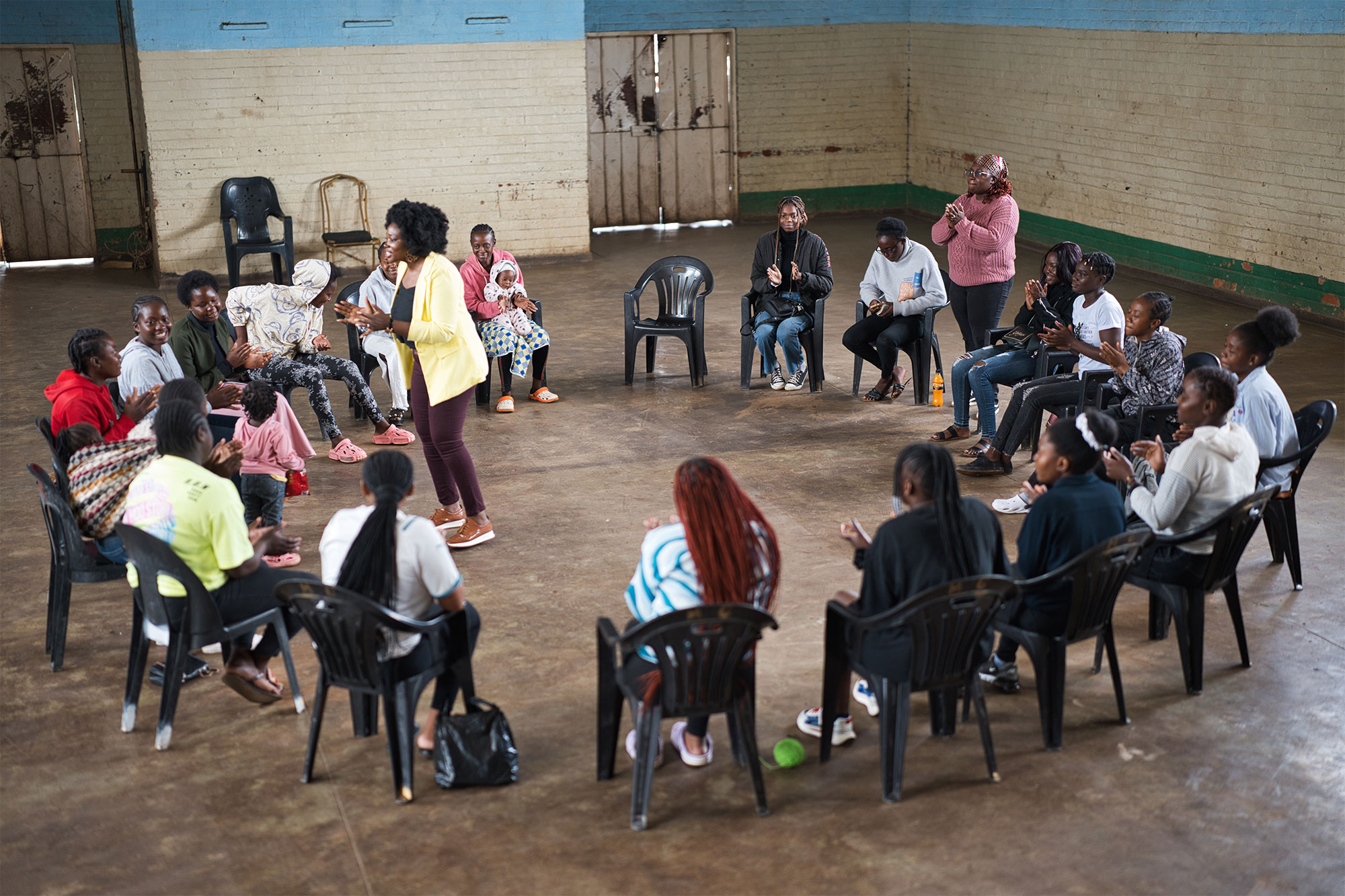The “Pink Girls” of Zambia: Breaking Down HIV Silence and Stigma
At a community hall in the Chilenje neighborhood of Lusaka, Zambia, the sound of singing rises above the noise of the bustling city. A group of young women sit in a circle. They call themselves the “Pink Girls” — a sisterhood of strength, resilience and healing.
At the center is Taonga Banda, a peer educator and psychosocial counselor who has turned her own journey with HIV into a lifeline for other girls.
Taonga knows the heavy weight of stigma quite well. She was the only sibling born HIV-positive among her 10 brothers and sisters. Her mother passed away from an AIDS-related illness. But with the support of a loving stepmother and a hospital counselor, Taonga stayed on treatment and slowly began to find not only her voice, but also her purpose: to help other girls walk the same road with courage – and not alone.
Today, at just 26 years old, Taonga leads weekly sessions for adolescent girls and young women in her community who are living with HIV. Her program offers more than counseling. It’s a space for girls to be themselves, meditate, learn new skills, sing, cry and speak boldly – a space where young women begin to believe again in their futures.
“They are carrying a lot of pain,” Taonga says. “I know I have to stand for them – give them a shoulder, an attentive ear, and help them love themselves. And I tell them: You can do anything that an HIV-negative person can do.”
Among the Pink Girls are Muape and Chola, both 21 years old, who found strength through the group. “We can speak boldly here,” says Muape. “I’m HIV-positive, but I can do everything.”
Chola agrees: “Never give up, go to school, and become someone.”
Nineteen-year-old Mwila agrees. She started treatment at 15 and says it was Taonga who helped her fully accept herself. “I dream a lot – of becoming a nurse, owning a business, starting a family. I know the true me now. I’ve faced stigma, even from family, but I can’t let what others say destroy me. Information is power.”

Taonga herself draws strength from the girls – even on the hard days. “Sometimes I see them break down, and I feel it too,” she says. “I need to be strong, to remind them this is a journey. Acceptance doesn’t come in a day.”
While Taonga has faced stigma and other challenges over the years, her journey has been filled with a lot of love, too. Taonga is married to an HIV-negative man who often joins her sessions to talk with the girls about acceptance and healthy relationships. “He loves my heart,” she says with a quiet smile.
Zambia has surpassed the 95-95-95 targets (95% of people living with HIV know their HIV status, 95% of people who know that they are living with HIV are on lifesaving treatment, and 95% of people who are on treatment are virally suppressed). But adolescent girls and young women still account for 75% of new infections. This is why Taonga’s work remains so vital.
Since 2003, the Global Fund has invested over US$650 million in Zambia’s HIV response, working with national and local partners to expand access to prevention, testing and treatment services. This support has also strengthened health systems, ensuring equitable access to care. Investments by the Global Fund partnership have been particularly focused on providing antiretroviral therapy to everyone who needs it, including adolescent girls and young women.
For Taonga and the Pink Girls, the fight against HIV is a daily commitment – to self-love, to sisterhood, and to breaking the silence that still surrounds HIV – and an opportunity to navigate the gender inequalities many of them quietly face.
“We are many,” says 16-year-old Esther. “And we are one family.”
